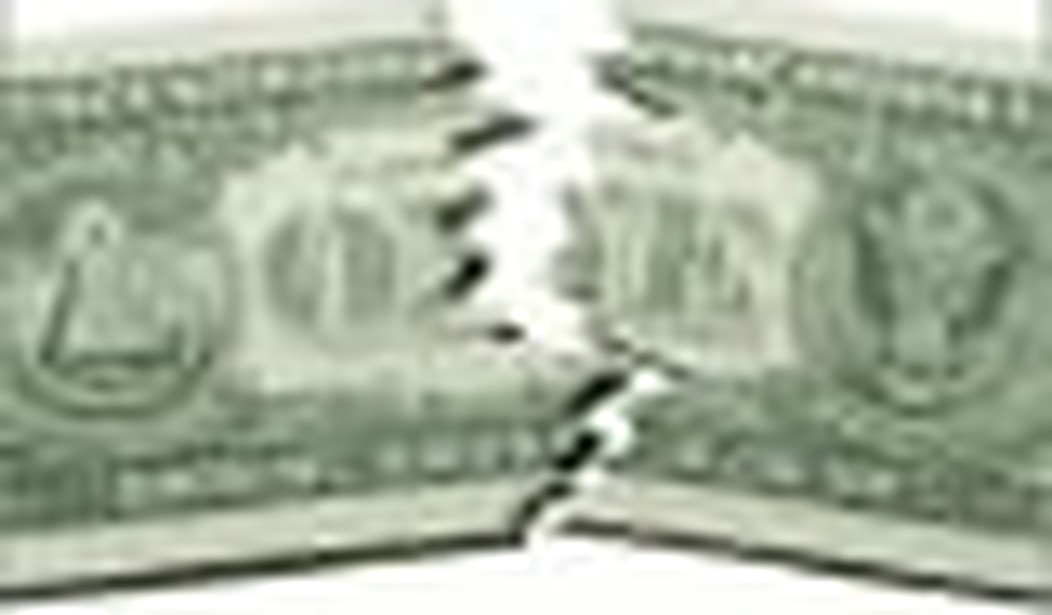On Tuesday, Robert Fisk of Britain’s Independent reported that Gulf Arab states, China, Russia, Japan, and France have been holding secret meetings to end the pricing of oil in dollars. Instead of the greenback, the group has decided to use a basket of currencies for this purpose. Included in the basket will be gold, yen, renminbi, euros, and a new unified currency for the states of the Gulf Cooperation Council. The deadline for the move away from the dollar is 2018.
Does such a cabal exist? Fisk’s article states the facts were “confirmed to the Independent by both Gulf Arab and Chinese banking sources in Hong Kong.” Apparently, no official of any government talked to the reporter about the conspiracy and none of his sources went on the record. Fisk’s story predicts that participants in the arrangement would issues denials, and the denials from Gulf oil officials in fact came swiftly. “We have never heard of this or discussed this, not even secretly,” stated Abdullah bin Hamad Al Attiyah, Qatar’s oil minister. Said Sheik Ahmed Al Abdullah Al Sabah, Kuwait’s oil minister, “I didn’t even dream about it.”
Normally, smoke does not appear without fire, but the article alleging a currency conspiracy had a fantastical quality about it. For one thing, the renminbi is not convertible and, at the moment, is tightly pegged to the dollar. Although the Chinese say they will loosen their currency practices, Beijing’s most recent move, evident since the middle of last year, has been to back away from reform, making the renminbi unsuitable for the basket. Moreover, the inclusion of a currency that does not exist yet stretches credulity, and it would be a minor miracle if Fisk’s list of countries, which includes both oil producers and consumers, could agree on the basket’s composition. The Gulf states rely on America for their security, so it is unlikely they would try to undermine the greenback while Iran is threatening them with its nuclear program. In any event, the price of oil moves up whenever the dollar declines, so producers are insulated from dollar weakness. Finally, as the astute Tom Holland of the South China Morning Post points out, New York and London oil futures, used as a benchmark, will still be denominated in dollars.
And there are about a hundred other reasons why the Fisk story does not make sense. So where did the reporter get his “facts”? Probably from traders who wanted to plant a story to make a quick killing in the markets.
Nonetheless, the news propelled the price of gold to $1,045 an ounce on Tuesday and drove the dollar down. Even though Fisk’s story is, in all likelihood, untrue, investors are willing to believe any bad news about the American currency these days.
Why? It’s not that other nations don’t want to dethrone the dollar. Many of them — most notably China, Russia, Iran, and Brazil — have said they do. It’s because Washington seems determined to destroy its own currency. The Bush administration, with its outsized federal deficits, weakened the dollar. And now President Obama is proposing gargantuan spending plans. On Wednesday, the Congressional Budget Office predicted the federal government this fiscal year will spend a record $1.41 trillion more than it will take in. At 9.9 percent of gross domestic product, the shortfall is the largest relative to the economy since 1945. In absolute dollar amounts, it is the largest federal deficit ever. It is more than three times last year’s deficit, which was $459 billion. The 2008 deficit was more than double the one in 2007. No wonder the United Nations on Tuesday called for a new reserve currency.
This year, the dollar is down more than 15 percent against six other major currencies, and its movements, not surprisingly, have been tied to various predictions of the federal deficit. “It fell apart in March when the Federal Reserve started printing more money,” notes Phil Flynn, the director of research at a trading house in Chicago, referring to the greenback. “It’s been trending down and everytime it looks like it’s hit bottom, this kind of news slaps it lower.” And the president seems to have a talent for creating such news. For instance, although he promises not to sign healthcare legislation that will add “one dime” to the deficit, no one quite seems to believe him.
Perhaps the only bright spot is that, as the downturn occurred, Americans began to save more. In 2005, their personal savings rate turned negative. Last year, as economic conditions deteriorated, consumers began to sock increasing amounts of income away. Although the savings rate has declined from 6.9 percent in May to August’s 3.0 percent, the positive savings numbers mean, among other things, that the U.S. can finance greater amounts of its federal budget deficit.
President Obama, however, can spend more money than Americans can put in the bank. If that happens, then Robert Fisk can really get busy. In that case, foreign finance ministers will really be conspiring to get rid of the dollar.









Join the conversation as a VIP Member